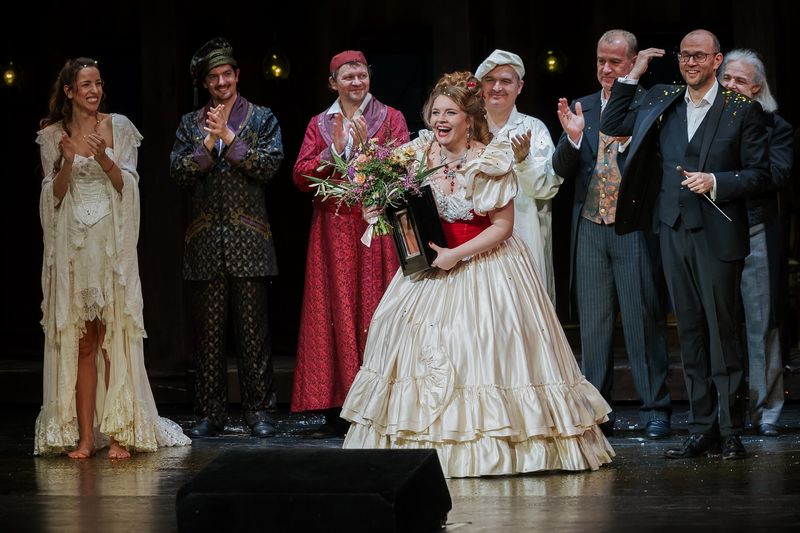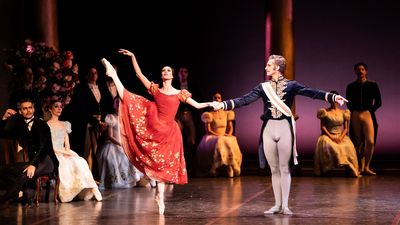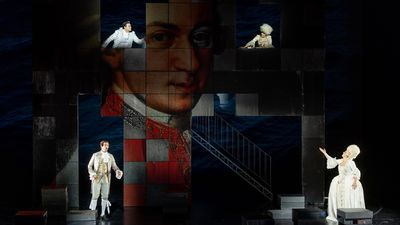
On 23 February 2024, during the standing ovation following the final Arabella performance of the season, the popular soprano was surprised with the announcement that she would be one of the recipients of the Hungarian State Opera's greatest honour for the next season. She was presented with a swan-shaped award made by the Herend Porcelain Manufactory by artistic director András Almási-Tóth, amidst the celebration of her colleagues and the audience.
Polina Pasztircsák, who made her debut at the Opera House in 2011, continues to be a regular performer at the OPERA in addition to her numerous invitations as an international opera and concert singer. In addition to the title role in the recently concluded Arabella series, she had appeared on stage as Gutrune in Götterdämmerung, and in her emblematic role of Mimì in La bohème earlier this season, while in May she will reprise her role of the female lead role in Pelléas et Mélisande at the Eiffel Art Studios. The soprano, who was also awarded the Hungarian Silver Cross of Merit and the Mihály Székely Memorial Plaque, received the OPERA's most prestigious award for the second time after the 2016/17 season.
Polina Pasztircsák began her vocal studies as a student of Júlia Bikfalvy at the age of 19. In 2004, she won the József Simándy International Singing Competition, then continued her studies in Italy as a student of Mirella Freni. She graduated from the Girolamo Frescobaldi Conservatory in Ferrarain 2010. She made her operatic debut in Modena in 2007, at the premiere of Lorenzo Ferrero's contemporary opera Le piccole storie. Her international breakthrough came at the Geneva International Competition in 2009, where, in addition to the first prize, she won three more special prizes: since then she has been a regular performer in the opera houses and concert halls of Europe. At the Hungarian State Opera, her roles have included Violetta (La traviata), Desdemona (Otello), Micaëla (Carmen), Colombina (I spritisti), Nedda (Pagliacci), the Countess (Le nozze di Figaro), Donna Anna (Don Giovanni), and Amelia (Simon Boccanegra).
With the chamber singer award, modeled after the Kammersänger title known from German opera houses, the management of the OPERA wishes to express its appreciation for its outstanding active soloists, appreciating their talent and stage performance. A maximum of three people can hold the title of Chamber Singer, which also comes with special remuneration during the season, an opera singer, who has not received the Kossuth Award yet, may be awarded the title a total of three times. In the past decade, the accolades were presented at the end-of-season Night of Stars gala. As an innovation, they are now presented during the season, allowing the audience to share in the surprise and joy of their favorite artists.


